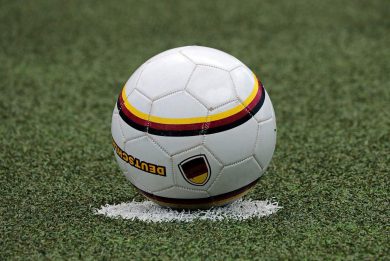
Considering the disparity in rankings, roster value1, international experience, and historical success, Belgium should have dominated Canada. Instead they considered themselves lucky to come out one point victors after being outplayed in nearly every statistical category. They then lost 2-0 to Morocco and failed to make it out of the group stage.
Both Germany and Spain lost to Japan and at one point tonight it looked like both would be eliminated. Denmark lost to Australia and failed to make out out of the group stage. Neither Wales nor England could beat the USA.
European nations are known for their soccer football2 prowess, and pride themselves on being able to consistently produce top players. Twenty years ago this was true, and in some respects this is still the case today: Overall, European players have developed much better technical skills, such as dribbling and passing and shooting accuracy, than their CONCACAF, AFC, and OFC counterparts.
They are also better tactically: As individual players they make quicker and better spacing and passing decisions, which combined with those of their teammates is observable as smoother and more consistent execution of the coaches tactics. More experience leads to more confidence, which should make them better able to handle pressure. These are all manifestations of high cognitive speed.
However, when it comes to athletic speed, European players are a step behind some other nations. Literally one step behind, by taking false (0.2 sec) and negative (0.3 sec) steps when starting a sprint from a walk or jog. They loose a lot of footraces. Also, take a look at their arm action when accelerating, breaking, or at top speed: Many more of the top Europeans have obvious asymmetries and oddities compared to their competitors from other continents.
So, despite the European teams having the edge when it comes to technical speed and cognitive speed, they often trail with respect to athletic speed. Two out of three ain’t bad3, but —with a low-scoring sport in a tournament situation— it may not be good enough.
Case in point: Canada swarmed all over the Belgians. Harassing their dribbles, rushing passes and cleanly tackling when it seemed they were beaten. Despite the athletic dominance, the Canadian team did miss a lot opportunities, had errant passes and could not find the net. One out of three ain’t good, and the match outcomes support that. But if you completely neglected to account for athletic speed (in your team and that of your opponents) you will be surprised by its effectiveness4. A slightly delayed (cognitive) and off-target (technical) pass can be partially made up for, if the recipient can move (athletic) quickly towards the ball. Similarly, an out of position defender is not quite so far out of position if he can cover more ground than his opponent in the time available.
When two European team play each other, the lack of athletic speed is not noticeable to everyone because both teams are equally poor in this capacity. Likewise cognitive or technical shortcomings are less obvious when the Aussies play the Americans, for example, than when they are against some other opponents. However, when these teams face Europeans, the differences become more apparent. As the bracket stands, you will get a chance to observe some of these combinations this for yourself in the next week.
Why do European players lack athletic speed?
It is plausible that with only so much time and energy available for training, in world-class soccer players only two of the three can be in peak performance simultaneously. The Europeans favour cognitive and technical abilities, whereas other nations pairs just one of those with athletic speed in their final preparations for major competitions. This should not be the case since the three traits are complimentary to one another, and can be trained concurrently. Furthermore, positive speed adaptations are quite stable and can be maintained over relatively long periods of time.
Conversations that I have had with some performance directors, exercise physiologists and S&C coaches of various European national teams5 leads me to a different conclusion: Whether due to tradition/stubbornness, or naivety, they still train like it’s 1990. Of course they have the latest technologies and access to all the new equipment. They just use it in ways that don’t really have a positive impact on developing speed. Maybe they fail to recognize how important speed is. Maybe they do not understand how to coach it. Maybe they cannot resist doing things that are slowing their players down. Maybe they are unable to communicate these items to the head coach.
Perhaps because soccer football is not the number one sport in North America, Australia, or Japan, those countries have learned training strategies from the other football codes (American, Canadian, Aussie, and rugby) baseball, basketball and hockey. Consequently, they have been a bit faster than the Europeans at adopting more effective approaches for developing athletic speed.
As you grieve over your teams exit from this years world cup, imagine how great they can be if the coaches develop the cognitive, technical and athletic speed of the players. There is hope for 2026.
-CG
1 https://www.statista.com/statistics/1298093/value-of-the-national-teams-at-the-qatar-world-cup/
2 Originally football was a general term to refer to all ground-based team sports that were not contested on horseback. Soccer was at one time a cool slang/abbreviation used by the English for association football, which had different rules from rugby football, which in turn spawned American, Australian, Canadian, and Gaelic football among others. Early English colonies maintained the linguistic tradition and distinction. Others -including the Brits themselves- chose the vague yet easily translatable and pronounceable root word. Since we work with all of these incarnations, to avoid confusion we try to use the full names for each game.
3 Jim Steinman
4 https://www.90min.com/posts/roberto-martinez-honest-assessment-belgium-scrape-past-canada
5 Names withheld to protect the guilty.
